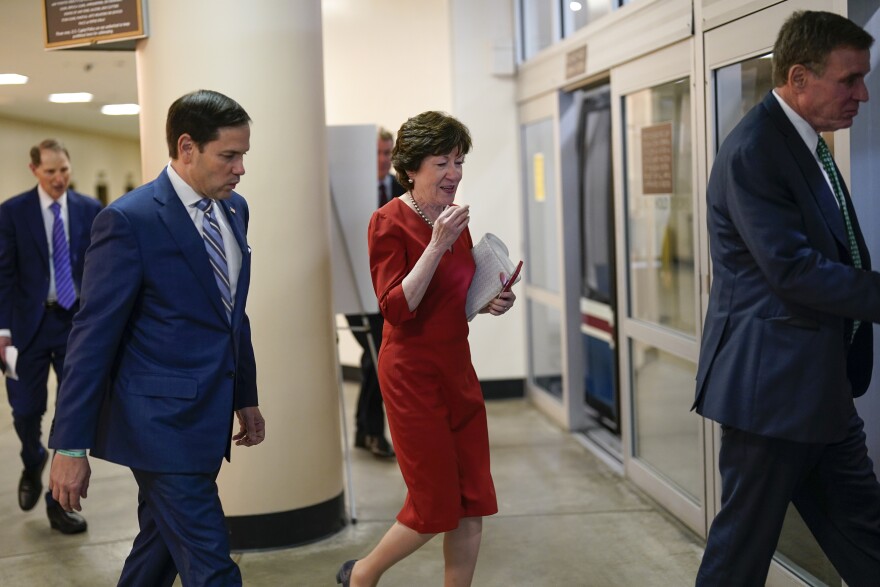Maine Republican U.S. Sen. Susan Collins and independent Sen. Angus King are playing key roles in an effort to head off any future attempts to overturn presidential elections. The two senators appeared in a hearing Wednesday to discuss how to overhaul the antiquated law exploited by former President Donald Trump and his allies during their failed bid to keep him in office last year.
Collins is co-sponsoring a bill that overhauls the 135-year old Electoral Count Act, the law that inspired Trump and others to claim that former Vice President Mike Pence had the power to unilaterally reject electoral votes in the states that lifted President Joe Biden to victory in 2020.
The bipartisan bill Collins is sponsoring with Democratic Sen. Joe Manchin, of West Virginia, makes it clear that vice presidents don't have that authority
It also requires states have rules in place by Election Day and significantly raises the threshold for members of Congress to object to a state's results.
During Wednesday's hearing before the Senate rules committee, Collins said the proposal is designed to protect a pillar of American democracy.
"Nothing is more essential to the survival of a democracy than the orderly transfer of power," she said. "And there is nothing more essential to the orderly transfer of power then clear rules for affecting it."
The peaceful transfer of power was jeopardized last year on Jan. 6 during the attempted insurrection at the U.S. Capitol, the culmination of a sustained pressure campaign by then-President Trump to convince state and congressional lawmakers — and his own vice president — to overturn the presidential election.
Since then some members of Congress have endeavored to eliminate ambiguities in the Electoral Count Act long criticized by election law experts, but never exploited to the extent that they were by Trump and his allies.
"As Sen. Collins said, if you have ambiguity and confusion, that opens the way to conflict and ultimately violence, as we saw on Jan. 6," King said.
King is a member of the rules committee that's reviewing the Collins-Manchin proposal, and earlier this year, he and two other members of the panel released an outline of changes they say are needed to forestall future election subversion.
King says the Collins-Manchin bill complements that outline.
Election law experts who testified during Wednesday's hearing largely agreed, including Derek Muller, a professor at the University of Iowa College of Law, who said the bill brings more clarity, precision and stability to how Electoral College votes are cast and counted.
He described the bill as an earnest bipartisan proposal that cleans up vague rules.
"To leave those in place before the 2024 election is to invite serious mischief," he said.
For that reason, Muller and other election experts are urging the rules committee and lawmakers to act before the 2024 presidential race begins.
Members of the committee signaled that they hope to do exactly that and pass some version of the Electoral Count Reform Act before the end of the current Congress.



